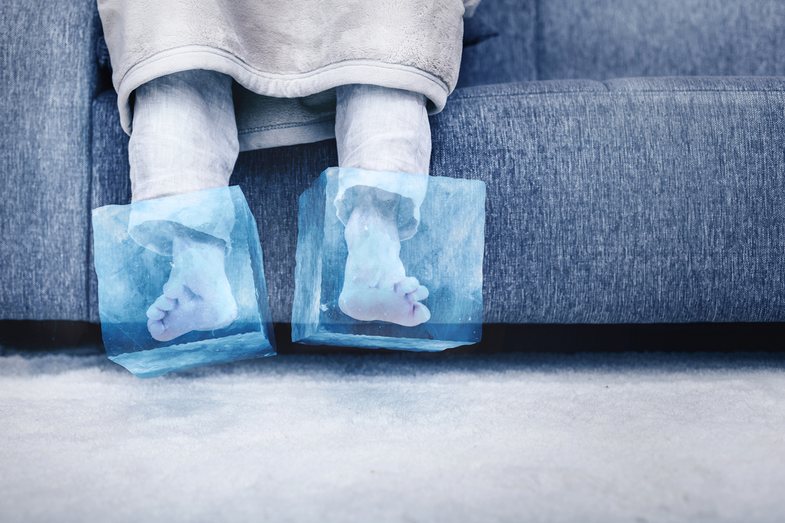
Cold feet can be the body's normal reaction to temperature, but sometimes it can be related to a medical condition that needs treatment. Diseases, from diabetes to anemia, can affect the temperature of the feet.
Other symptoms that may accompany cold feet and signal a medical problem include:
- Weakness and pain in hands and feet
- Sensitivity to cold
- Skin color changes when you are cold or stressed
- A numb feeling when you warm up
Possible causes
Anemia: Cold feet can be a sign that you are anemic. This means that the body does not have enough red blood cells, or they are not healthy enough to do their job of getting oxygen from the lungs to the rest of the body.
Peripheral artery disease: This condition slows or blocks blood flow to your legs and feet, which can make your feet cold.
Diabetes: If you have diabetes, you are at risk for a number of problems that can affect your feet.
Hypothyroidism (underactive thyroid): The thyroid gland may be to blame for cold feet. It produces hormones that affect almost all organs. Hormones also help convert food and oxygen into energy. If you have an underactive thyroid, it doesn't release enough hormones and you may have a cold.
Other causes include stress , high cholesterol , Buerge's disease , etc.
- 8 foods that relieve headaches
- When can hair loss be called normal, according to experts
- Egg freezing: What you need to know about the process, risks, financial cost, etc
- If you sleep with your hair tied up, you should definitely read this article
- 7 signs that you have problems with your blood sugar level
Source: MD Web





